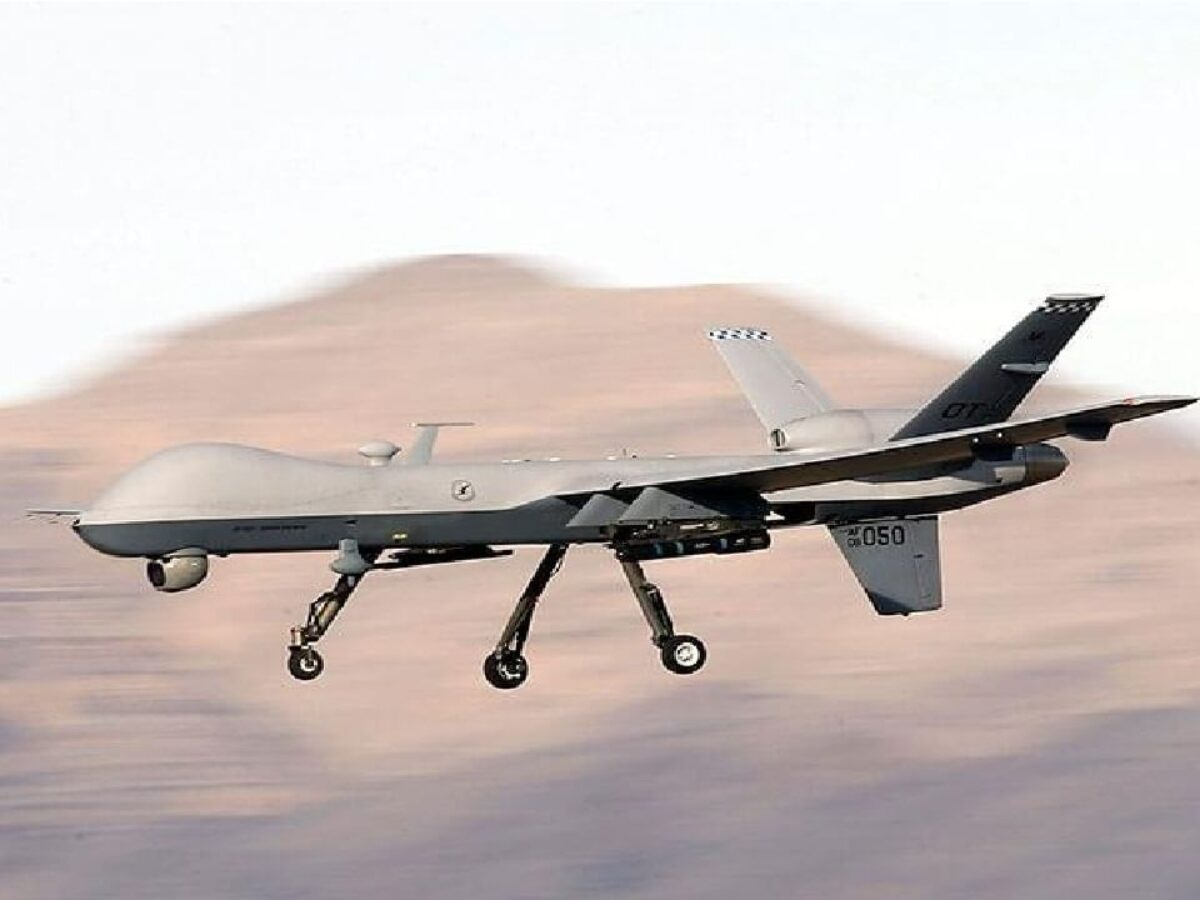Kamikaze Drone | 19 Mar 2022
Why in News
Recently, the US announced USD 800 million in new military aid for Ukraine, including 800 additional Stinger anti-aircraft missiles, 9,000 antitank weapons, 100 tactical drones including Kamikaze or suicide drones.
- Kamikaze are unmanned aircraft that are part of the tranche of weapons that are being sent by the US to Ukraine to assist their fight against Russia.
What are Kamikaze drones?
- About:

- Also called Switchblade drones, these are small unmanned aircraft that are packed with explosives that can be flown directly at a tank or a group of troops that are destroyed when it hits the target and explodes.
- They are called Switchblade because their bladelike wings spring out on launch.
- The drones have the capability of going past traditional defences to strike its targets and also cost a fraction of what the larger counterparts do.
- These small lethal drones are difficult to detect on radar, and they can even be programmed to hit targets without human intervention, based on facial recognition.
- Also called Switchblade drones, these are small unmanned aircraft that are packed with explosives that can be flown directly at a tank or a group of troops that are destroyed when it hits the target and explodes.
- Countries Possess such Drones:
- Although the Kamikaze might be the most advanced form of this genre of drones, Russia, China, Israel, Iran and Turkey all have some version of it.
What are its Specifications?
- Light Weight:
- Weighing just five-and-a-half pounds, including its small warhead, the Switchblade can be taken into battle in a backpack and fly up to 7 miles to hit a target.
- Can Adjust Blast Radius:
- The Switchblade has a feature that allows the operator to adjust the blast radius. So, it can kill the driver of a vehicle but not a passenger, for example. The weapon can be “waived off” up to two seconds before impact.
- A blast radius is the distance from the source that will be affected when an explosion occurs.
- The Switchblade has a feature that allows the operator to adjust the blast radius. So, it can kill the driver of a vehicle but not a passenger, for example. The weapon can be “waived off” up to two seconds before impact.
- Cameras for Centralised View of Area of Operation:
- The Switchblade also has cameras that show a target seconds before impact.
- The drone cruises at 63 miles per hour and provides “operators with real-time video downlinks for a centralised view of the area of operation”.
PYQ
Consider the following activities: (2020)
1. Spraying pesticides on a crop field
2. Inspecting the craters of active volcanoes
3. Collecting breath samples from spouting whales for DNA analysis
At the present level of technology, which of the above activities can be successfully carried out by using drones?
(a) 1 and 2 only
(b) 2 and 3 only
(c) 1 and 3 only
(d) 1, 2 and 3
Ans: (d)
